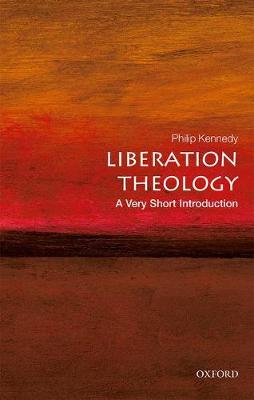Very Short Introductions
1 total work
Increasing concern about a great and growing gulf between the superabundant wealth of a few and the deprivations of a massive majority of human beings provided the catalyst that generated liberation theology, the most significant type of theology to have emerged over the past sixty years. In the second half of the twentieth century the human population more than doubled to reach 6 billion by the end of the milliennium. The majority of people alive then suffered from
poverty of one kind or another. Liberation theology since its inception has sought to speak about God from the vantage point of those who suffer from deprivation, racism, sexism, and political
oppression.In this Very Short Introduction Philip Kennedy explains what liberation theology is and how it emerged historically. He looks at the types and methods of liberation theology, and considers the ideas of some of its practitioners; the criticisms levelled against it; and assessments of its viability today. Kennedy also discusses how the multifaceted nature of poverty can involve much more than economic deprivation, arguing that people can suffer from
poverty on account of their race, sex, gender, culture, religion, ethnicity, or age. Such people live in poverty in the sense that they can be socially ostracized or bullied on account of their skin colour or
nationality. Tracing the beginnings of liberation theology in South America, Kennedy analyses the different forms it takes in other countries around the globe. As he shows, it is now possible to speak of Black, Asian, African, Hispanic, Feminist, Latino/Latina, Jewish, Womanist, Muslim, Political, Hindu, Queer, LGBT, and Disability liberation theologies. ABOUT THE SERIES: The Very Short Introductions series from Oxford University Press contains hundreds of titles
in almost every subject area. These pocket-sized books are the perfect way to get ahead in a new subject quickly. Our expert authors combine facts, analysis, perspective, new ideas, and enthusiasm to make
interesting and challenging topics highly readable.
poverty of one kind or another. Liberation theology since its inception has sought to speak about God from the vantage point of those who suffer from deprivation, racism, sexism, and political
oppression.In this Very Short Introduction Philip Kennedy explains what liberation theology is and how it emerged historically. He looks at the types and methods of liberation theology, and considers the ideas of some of its practitioners; the criticisms levelled against it; and assessments of its viability today. Kennedy also discusses how the multifaceted nature of poverty can involve much more than economic deprivation, arguing that people can suffer from
poverty on account of their race, sex, gender, culture, religion, ethnicity, or age. Such people live in poverty in the sense that they can be socially ostracized or bullied on account of their skin colour or
nationality. Tracing the beginnings of liberation theology in South America, Kennedy analyses the different forms it takes in other countries around the globe. As he shows, it is now possible to speak of Black, Asian, African, Hispanic, Feminist, Latino/Latina, Jewish, Womanist, Muslim, Political, Hindu, Queer, LGBT, and Disability liberation theologies. ABOUT THE SERIES: The Very Short Introductions series from Oxford University Press contains hundreds of titles
in almost every subject area. These pocket-sized books are the perfect way to get ahead in a new subject quickly. Our expert authors combine facts, analysis, perspective, new ideas, and enthusiasm to make
interesting and challenging topics highly readable.
